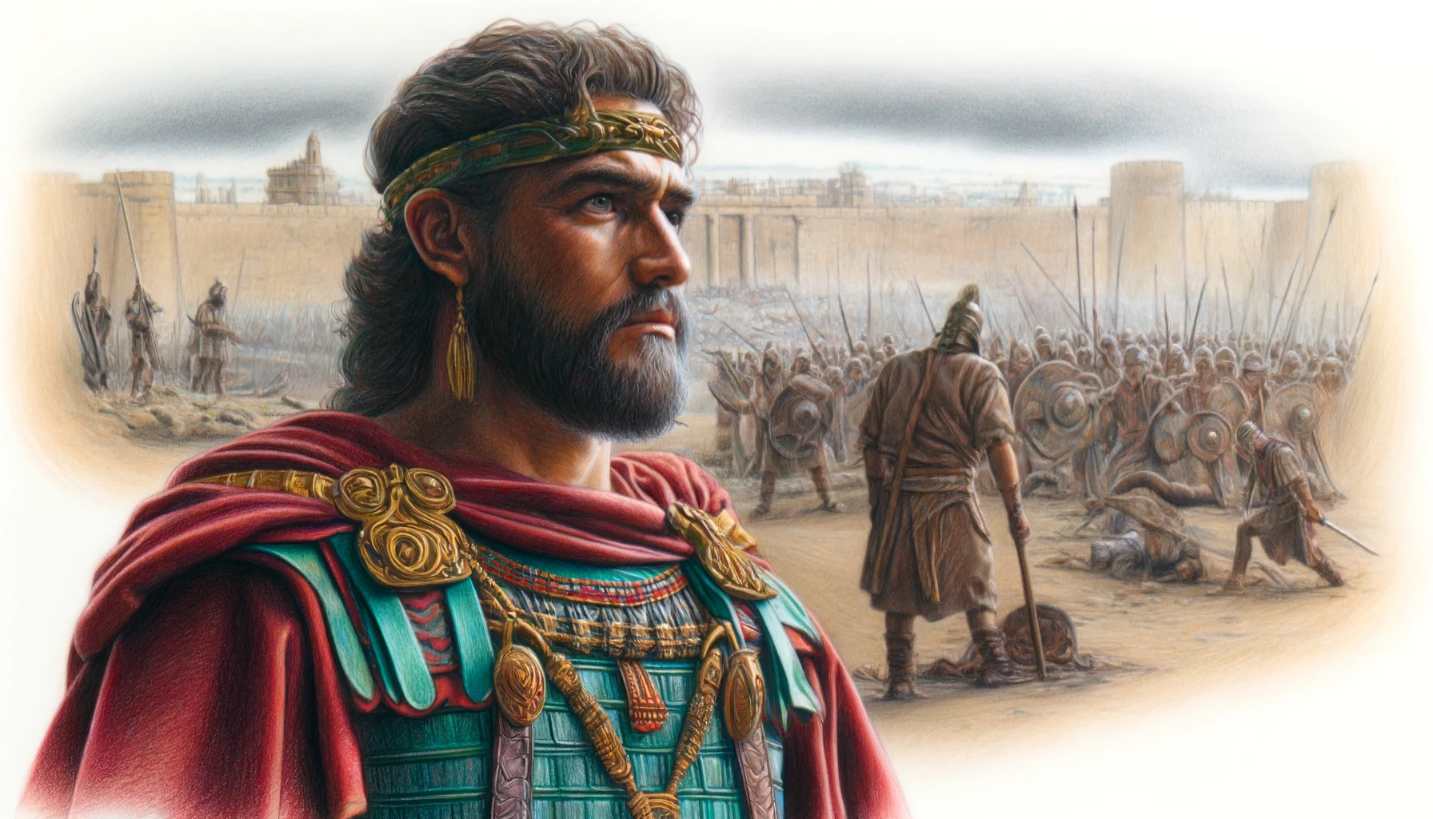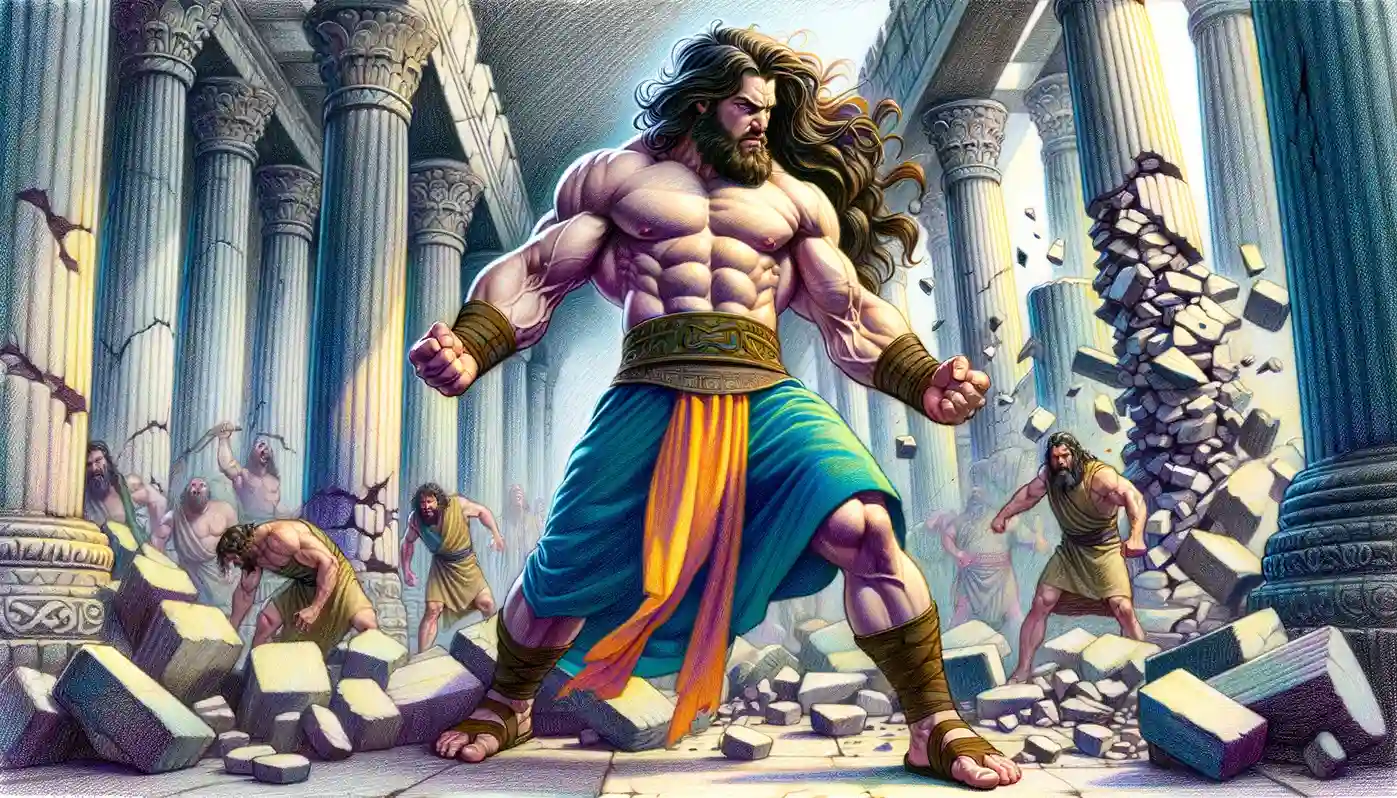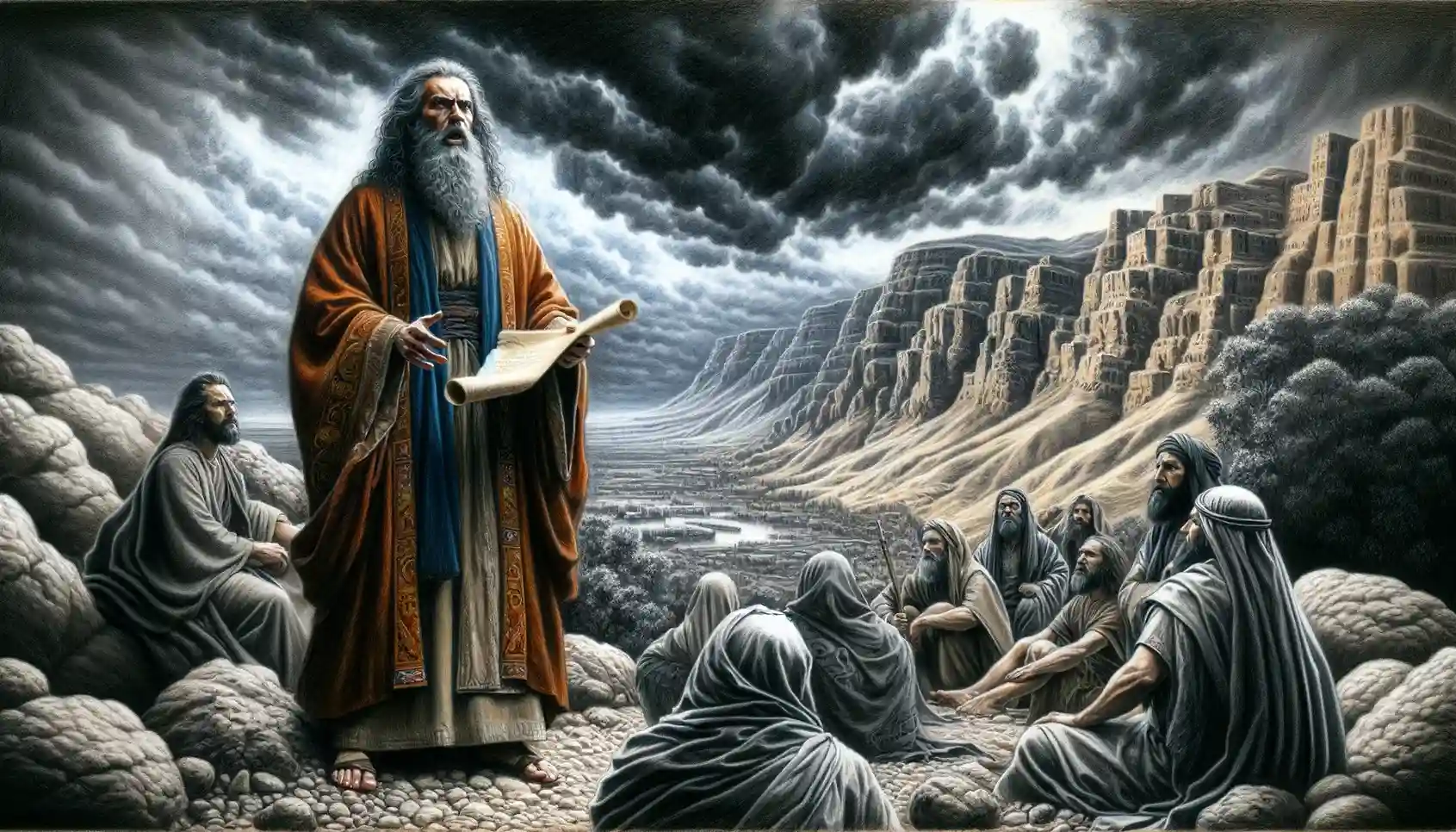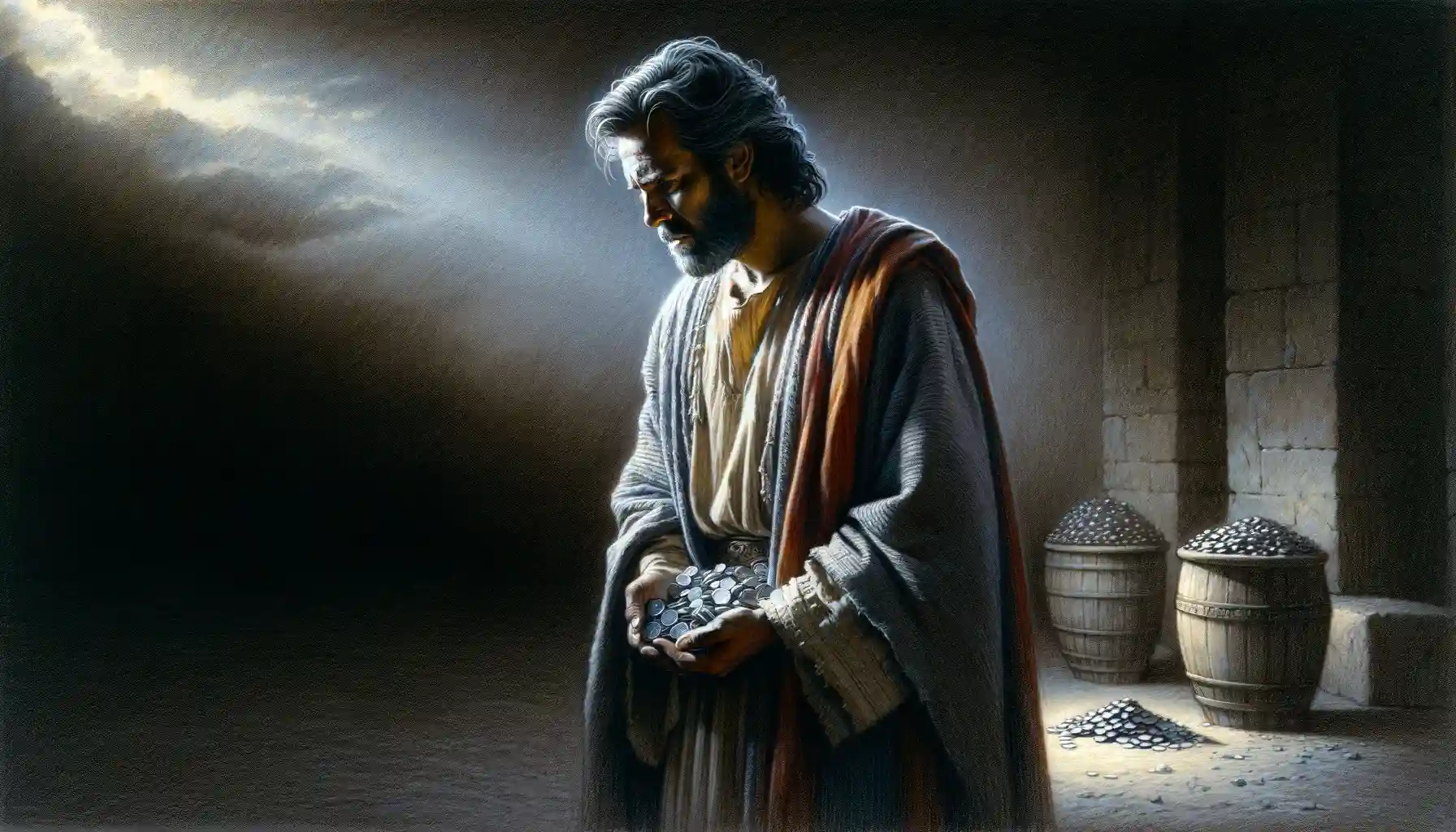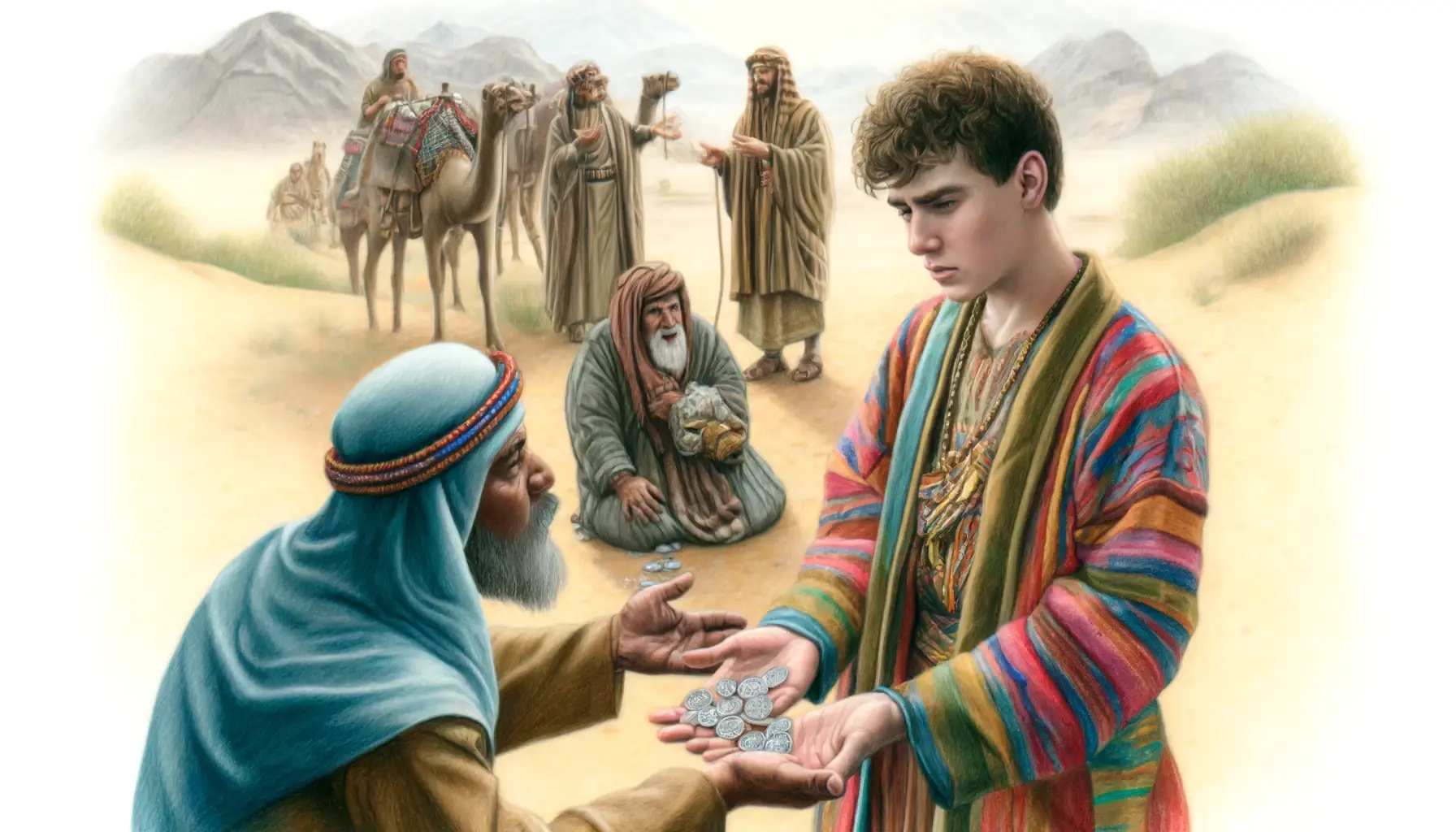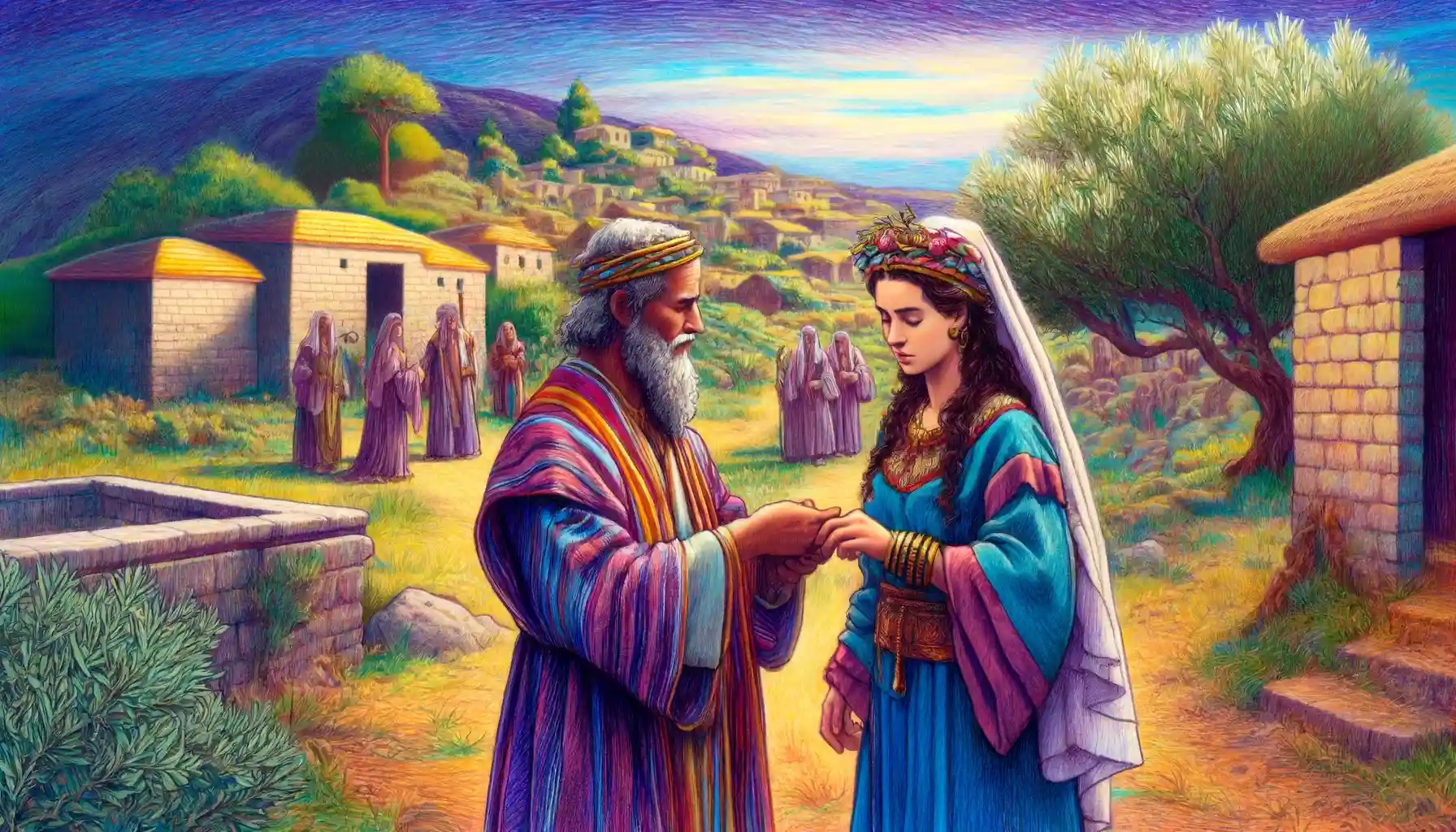Uriah the Hittite, known for his unwavering loyalty and integrity, was a valiant soldier in King David’s army whose tragic death, orchestrated by David to conceal his own sin, serves as a powerful lesson on the consequences of moral failure and the necessity of justice.
Samson, a Judge of Israel known for his incredible strength linked to his Nazirite vow, waged conflict against the Philistines, and despite his eventual betrayal and imprisonment, achieved a final act of redemption by bringing down the temple of Dagon, killing many Philistines.
Obadiah, a minor prophet, delivered a prophecy focusing on the divine judgment against Edom for its betrayal and cruelty towards Judah, emphasizing themes of divine justice, the restoration of Israel, and the ultimate triumph of God’s kingdom.
Judas Iscariot, one of the Twelve Apostles, is notoriously known for betraying Jesus Christ to the Roman authorities for thirty pieces of silver, an act marked by the infamous “kiss of Judas” in the Garden of Gethsemane, leading to profound consequences including his own remorse and subsequent suicide, embodying themes of betrayal and human failing within the Christian narrative.
In Genesis 37:28, Joseph’s brothers sell him into slavery to Ishmaelite traders for twenty shekels of silver, setting in motion a series of events that fulfill divine prophecies and illustrate themes of betrayal, providence, and redemption within the biblical narrative.
The Book of Hosea offers profound insights into the complexities of God’s character and His expectations for a faithful, loving relationship with His people, making it a critical text for understanding biblical prophecy and theology.

